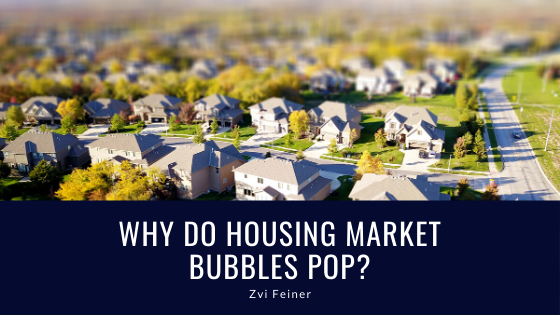Most people think of investment in real estate as a sound investment where they don’t have to worry that their home value could decrease, but it does happen in cases where a housing bubble bursts. When this happens, home values fall out of the sky.
What is a Housing Bubble?
Before one can understand how housing bubbles burst, they should first learn what causes a housing bubble because it will be quintessential to knowing how they pop. Housing bubbles happen when the high demand and low supply inflates the prices to unnatural heights. As any stock market investor knows, the market isn’t logical. It acts bipolar, and when good times are around, everything goes up on the emotions. When it falls, emotions play a role in the lowered values.
Investors often buy in these markets with the belief that they will make money off it. This feeds a type of false demand, and as the prices rise, more speculators buy in.
Unsustainable Growth
At some point, you will see unsustainable growth. Every bubble that goes up can’t continue the unreasonable growth in the economy. You have a number of things that can cause the bubble to burst that includes:
- Slowed economy
- Rising interest rates
- Lowered demand
Whatever the reasons behind the bubble bursting, a slowed demand follows, and investors will start to sell off as they believe the prices will fall from the sky. The fear of selling begets more selling, which lowers the demand, and eventually, the bubble bursts and home prices drop like a rock in water.
Drastic Financial Consequences
Instability within the housing market can have serious consequences. As the loans go bad, people can’t afford to pay off the loan, and they have the home repossessed. The banks try to take back the homes, and thousands or even hundreds of thousands of people find themselves homeless.
Bubbles happen because of investors who start to overvalue the market, and as the market is overvalued, it eventually experiences a correction. These corrections hurt everyone. Governments often try to give investors realistic expectations about the market to ensure that they make smarter decisions, and they limit the amount of cheap credit that investors have access to for buying up properties.

